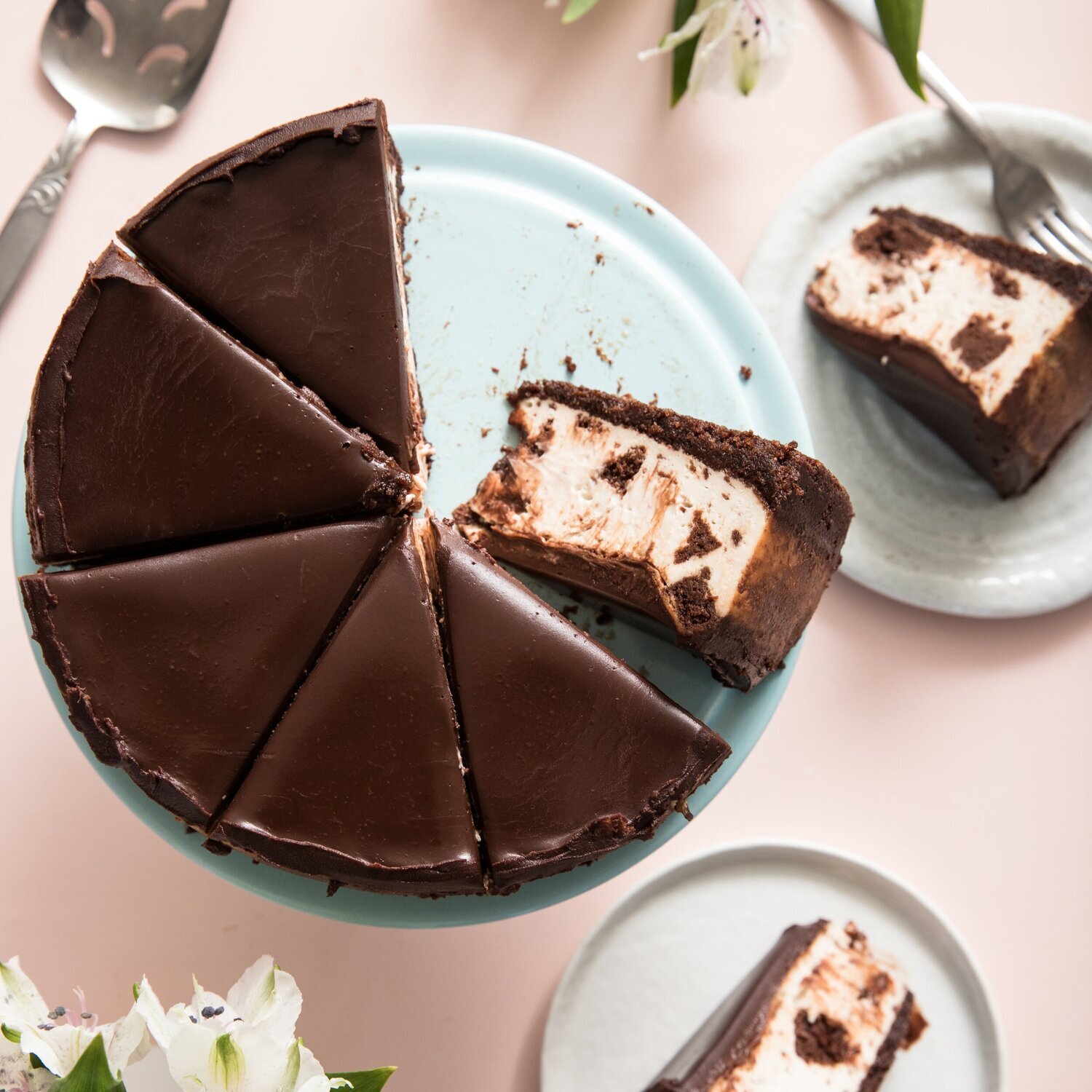
But there’s a big difference between driving clicks, sales and impressions by any means necessary, and responsibly marketing brands we’re proud to represent. As advertisers representing big brands, the words we choose have meaning, and what we say gets drastically more exposure than the average person’s. Because of this, it’s crucial for advertisers to consider the results of our actions. Are we promoting something that has a 97% chance of failure? Are we helping institutionalize fatphobia? Are we normalizing an unhealthy relationship with food?
Here are some of our “favorite” (read: not) offenders.
Skinny
The time has come (and gone!) for diet culture to die. Feminists and body-positive warriors have spoken to the importance of this fight for generations, and we’re still fighting. As a women-owned and run company, we’re doing our part to kill diet culture dead.

People come in all shapes and sizes, and it’s unfair, irresponsible and dangerous to continue upholding “skinny” as the only ideal. And don’t get us started about the damage of rebranding plain ol’ fatphobia as “wellness.” Putting ultra thinness on a pedestal in marketing materials perpetuates skinny bodies as the aspirational default and reinforces thin folks’ status as a privileged class, thereby demoting anyone heavier to a lower station.
While losing weight may be a strategy for health in some cases, and people may make a personal choice to alter their weight, the reality is that most weights – with no washboard abs or thigh gap in sight – are perfectly healthy. There are plenty of fat people who are the picture of health, and plenty of thin people who are unhealthy.
Selling products based on dieting and the notion of “skinniness” is predatory, pure and simple. Those doing so ask people to spend time and money on methods that are proven to fail 97% of the time in the long term. Passively letting this notion live on makes us all complicit.
Cleanse
Real talk: There is only one way to cleanse your body and it’s called your digestion system! Your kidneys, liver and intestines literally evolved to get the stuff your body doesn’t need out of your system. Cleanses aren’t real.

Food *cannot and will not* cleanse your body of literally anything. Harvard Medical School goes as far as to say “many studies have shown that fasts and extremely low-calorie diets invariably lower the body’s basal metabolic rate as it struggles to conserve energy” and “the rationale for intestinal cleansing — to dislodge material adhering to the colon walls — is fundamentally mistaken.”
In addition to being just plain immoral, making claims about a product’s ability to cleanse can land you in big legal trouble. In March 2020, “detox” tea Teami was hit with a $15 million fine for making false claims about what the tea can do (spoiler alert: it induces diarrhea) and for not requiring the influencers they hired, including Cardi B and Kylie Jenner, to disclose that they were sponsored.
There’s so much wrong here – just slowly back away and stick to the science. Cleanses don’t work.
Guilt (and guilty, guilt-free, etc.)
Coronavirus, depression, high blood pressure…. Ya know, what this world needs is MORE EATING DISORDERS! (That was sarcasm, in case that wasn’t abundantly clear.)
Eating food is a human need. Moralizing food is not, and it ruins our relationship with keeping ourselves nourished. One easy way to lessen the impact of our collective fucked-up view of food and weight is to change the words we use to describe food. As marketers and as humans, we should never describe food as a moral choice – because it isn’t. Everyone has their own individual health needs, and that’s between them and their doctor.
Describing food as “guilty” or “guilt free” is just plain irresponsible. American children (especially girls) get concerned about their weight sometimes as early as Kindergarten. And their views about diets come straight from their parents. It is our responsibility to do what we can to not inflict America’s non-scientific, sizeist obsession with weight and calories on the next generation.
At Heart Creative, we preach and we practice. We have a written policy in place, which explicitly prohibits our marketing work from including food-shaming language. Undoing decades of ingrained bullshit: Sometimes, you gotta be all formal about it.

Clean
If one food is “clean,” that means that something else is “unclean.” Even though this theory is espoused by a particularly popular 30-day diet, these terms are not backed up in science or nutritional value.
Take rice for example – it nourishes 70% of the world’s population – mostly people of color, many of them poor, and including some cultures that are categorically healthier than Americans (hi, Japan!). And yet several of the trendiest diets right now cast rice as a non-”whole,” “unclean” food.
So are we really talking about cleanliness here? Because it sure seems like we are talking about creating a cuisine that’s expensive, dripping in privilege, and carefully curated by white people for white people.
Most foods cast as “unclean” are, like literally every other type of food, perfectly fine in moderation (allergies/medical conditions excluded, of course).
***
And there you have it.
In order to stay true to our goal of radical goodness, we not only need to refuse to be part of toxic diet culture — we need to actively oppose it. We encourage you to join us, and do the same.

